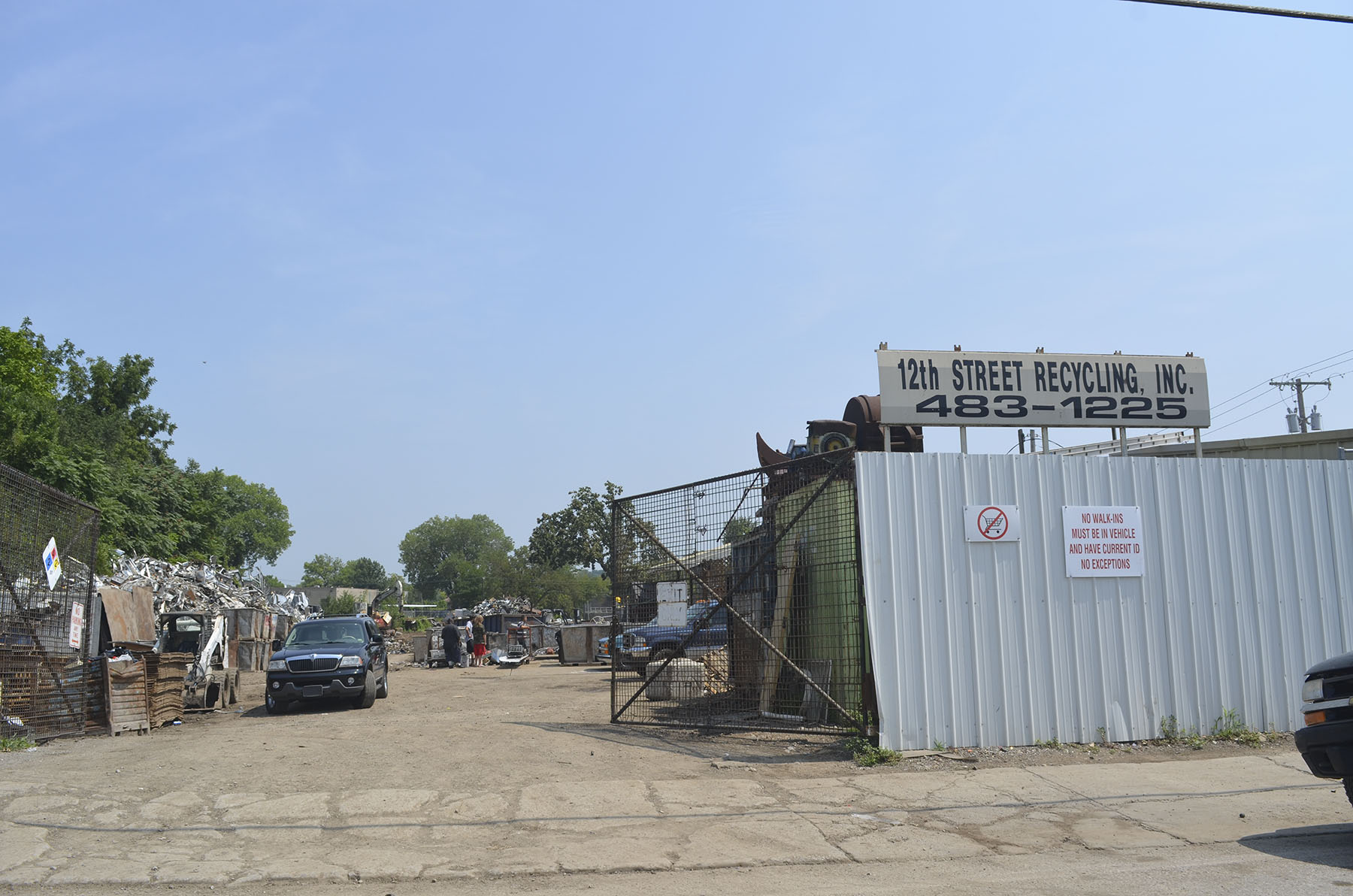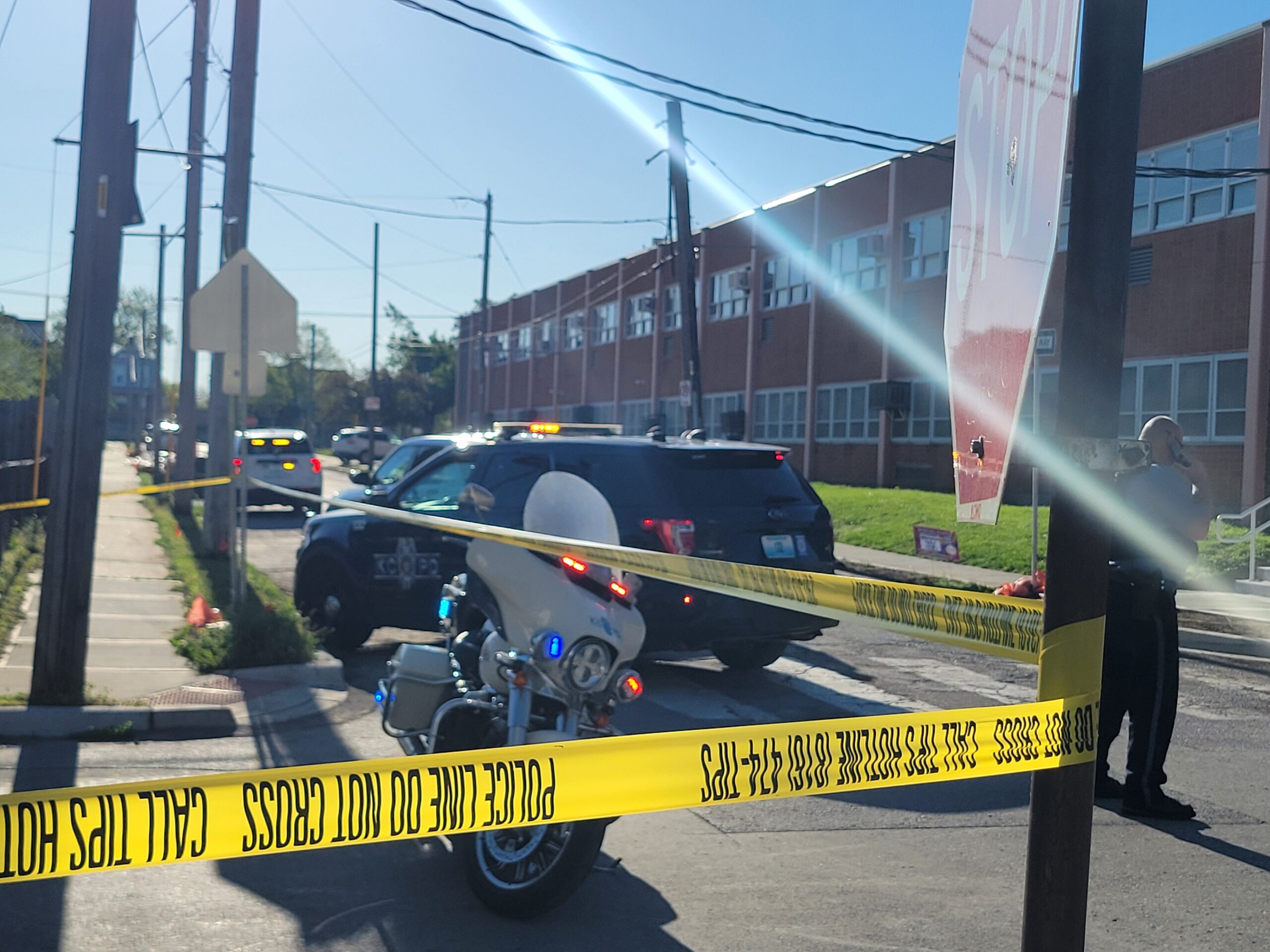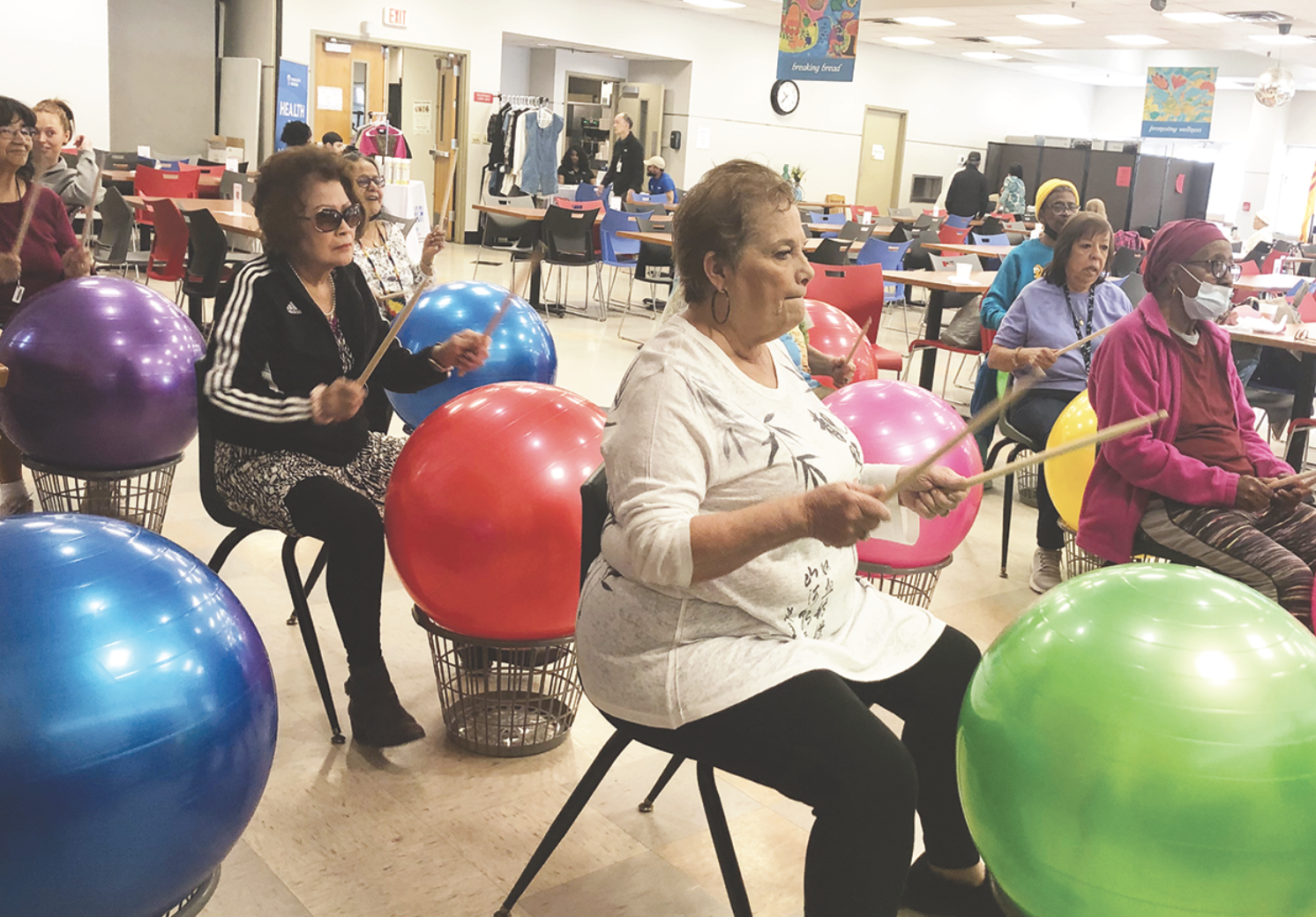 By Paul Thompson
By Paul Thompson
Northeast News
Historic Northeast residents came out in full force on Wednesday, August 22 to support legislation that would impose stricter regulations on salvage yards, secondary metal recyclers, and towing operations.
The legislation is sponsored by 1st District Councilman and Mayor Pro Tem Scott Wagner. The councilman brought representatives from the police department and fire department to testify at the Neighborhoods and Public Safety committee meeting, along with Northeast Alliance Together (NEAT) Director Mary Cyr and other neighborhood representatives.
One of the primary goals of Ordinance 180606 is to dissuade scrappers from attempting to make quick money by stealing copper and other valuable metals from Kansas City homes. To achieve this objective, Wagner has proposed a hold window between the time someone drops metal off at a salvage yard and the time the payment is distributed.
“We go from the presumption that easy cash makes it easier for people to scrap, and therefore damage homes and pull copper,” Wagner said. “What we have suggested is that instead of getting cash the day of, that you actually are paid by check three days later.”
The portion of the ordinance related to secondary metal recyclers drew particular interest from the sizable Northeast contingent. Cyr spoke on behalf of the six Northeast neighborhoods, which had identified changes to Kansas City’s scrapping regulations as one of the area’s most important priorities during a January 2018 State of the Northeast forum.
“When we came to do our call to action items, metal scrapping was the first thing that they brought up,” Cyr said of the forum. “I’ve been at my position for three years, and this is one of the major issues that effects the economy and the quality of life for Northeast residents.”
Northeast Kansas City Chamber of Commerce President Bobbi Baker-Hughes described how metal thefts are occurring at all hours of the day, impacting both private homes and area businesses.
“Things are being stolen in the middle of the night,” said Baker-Hughes. “That’s a scary way to wake up, and that’s a scary way to open up your business first thing in the morning.”
Kansas City Power and Light (KCP&L) Community Business Manager Carol Baker told the committee that thefts lead to substantial financial losses for the utility company.
“As of today, we estimate that we’ve lost $100K in copper thefts just this year,” Baker said.
Gregg Lombardi, Executive Director at Neighborhood Legal Support of Kansas City, has recently worked in the housing industry in the Historic Northeast, helping Catholic Charities clear titles on homes they purchased in the neighborhood. Lombardi suggested on August 22 that recycling centers are essentially paying scrappers to steal from Northeast homeowners.
“The single largest cause of blight in the urban core of Kansas City is these recycling centers,” Lombardi said.
Jim Ready of the KCMO Regulated Industries division also outlined proposed adjustments related to the salvage of motor vehicles and vehicle parts.
“With regard to non-ferrous metals, any payment shall be made by issuing a pre-numbered check, or by using a system for automated cash or electronic payment distribution which photographs or videotapes the payment recipient and identifies the payment with a distinct transaction in the register,” Ready said.
He went on to explain the difference between ferrous and non-ferrous metals, a key distinction in the scrap industry. According to Ready, ferrous metals contain iron or steel and are typically used for their strength and durability. Non-ferrous metals consist of precious metals like gold and silver, along with copper, brass, aluminum, platinum, bronze, lead, zinc, nickel and their alloys. As far as scrapping is concerned, ferrous metals tend to be less valuable than non-ferrous metals, mostly because there is a larger supply.
After the meeting, Wagner elaborated on the gist of new ordinance language.
“The idea is that there are more reporting features there, so that when a car comes in, you’ve got to take the picture and get the data from it before you do anything,” Wagner said. “There’s a record, then, of the vehicle – the transaction – so that if it does end up being stolen, the police can go identify it and find it.”
Cpl. Nate Bradley of the Missouri State Highway Patrol described how the jobs of law enforcement officers are made more difficult when vehicles are scrapped immediately after a vehicle sale. Oftentimes, he added, record-keeping at recycling facilities is insufficient. He pointed to a 61% increase in auto theft since 2011 and an estimate that $800,000 in cars have been scrapped since 2012 as evidence that more stringent regulations are needed in Kansas City, Missouri.
That’s one reason why minimum penalties associated with those in violation of the motor vehicle portion of Ordinance No. 180606 would also be increased from $50 to $200 under the proposed changes, with the maximum fine rising from $500 to $1,000.
“What we’re finding is that we have people who are illegally towing cars,” Wagner said. “Sometimes a car is perfectly fine where it is – there’s no issues, no problem – they just go in, hook up, drive away, drop it off at a scrap yard, and then it’s destroyed before anyone even knows that it’s stolen.”
Notably, Wagner acknowledged that he did not consult with representatives with the scrapping industry as he worked on the ordinance adjustments. Five years ago, when Wagner attempted similar reforms, he ran into signification push-back and failed to gain support from the City Council.
“There wasn’t a commensurate show of support between law enforcement and neighborhoods that this was an issue that was important enough to move on,” Wagner said.
This time, Wagner arranged for neighborhood leaders and law enforcement personnel to provide input before the City Council. The decision to forego initial negotiations left some in the industry blindsided. Pam Breckenridge of Wabash Iron and Metal Company was among the concerned in attendance.
“There are several things that these changes have covered, which we have not had an opportunity to acknowledge or even look at,” Breckenridge said. “Who makes somebody wait three days when they have sold a piece of equipment? No industry.”
Ultimately, committee chair Alissia Canady chose to hold the ordinance until Wednesday, September 12. The hope is that the time will allow Wagner and his supporters time to work with the industry to craft language that is amenable to all. That said, Canady made it clear that she understands the plight of the residents who pleaded their case before the Neighborhoods and Public Safety committee.
“My intent is to allow this two weeks, probably, until we come back from the Labor Day break,” said Canady. “I’m very sympathetic to the neighborhoods.”


















